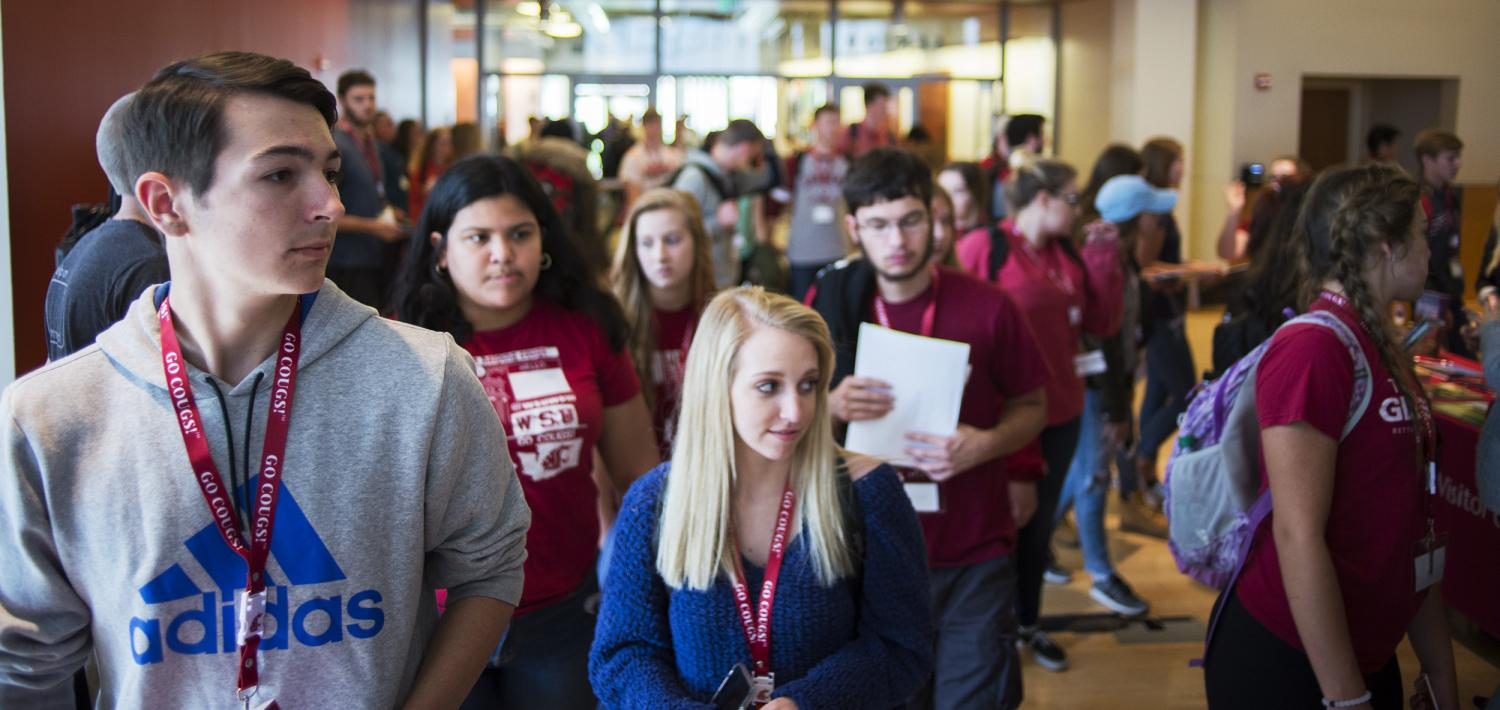Week of Welcome start date isolates new students
More activities as soon as students get on campus will help freshmen transition to university, one columnist argues
LUKE HOLLISTER | The Daily Evergreen
Alive! students browse local and campus organization tables at a resource fair as part of Alive! orientation June 15 at the CUB.
August 11, 2017
Learning what it’s like to be a Coug; that’s what Summer Orientation and Week of Welcome are about.
Both preparatory programs have witnessed significant modifications this year.
The mission of New Student Programs is “to provide a plethora of experiences,” said Amanda Morgan, director of New Student Programs. “In the past, Alive! programming was three days. This year, we’ve condensed it to two days … we don’t want to overwhelm students.”
Compacting orientation has been a popular decision. Incoming students enjoy wider flexibility in scheduling their trip over to Pullman. Programs within orientation have consequently condensed, “this allows us to cover more ground at the same amount of time,” Orientation Counselor Erik Sandoval said.
“The shorter ‘Coug Talks’ enable us to get straight to the point, which is what students want,” Orientation Counselor Madison Armstrong said.
The enhanced efficiency of any mandatory program, such as orientation, will be well-received. However, the optional services brought by Week of Welcome have been slashed to a shorter week. This is problematic as crowds of incoming students often rely on university-sponsored programs for their transition into the university.
Week of Welcome is meant to deliver options and opportunities to connect with fellow Cougs. While orientation successfully prioritizes an effective academic and financial preparation for college, Week of Welcome sets itself up to help furnish the social adjustment.
A student’s first week living on campus is perceptively an impactful adjustment period for any new member of the Coug family. Many students face distant separation from their families and hometowns for the first time in their entire lives, which is more common for Cougs than most other in-state colleges because of Pullman’s geography.
Incoming Cougs begin moving into the residence halls Saturday, while Week of Welcome begins Wednesday. The four-day delay can only serve to further isolate a great deal of Cougs during their first days at WSU.
“It’s important to make students feel welcome into the Pullman community since this will be their home for at least four years,” Armstrong said.
The number of days hosting Week of Welcome programming may challenge inclusion as well as adjustment. Greek Rush will be conducting its fourth day by the time Week of Welcome officially starts. Formal recruitment for Greek Life is already a daunting experience for countless students, and the stalling of welcome cannot serve to help that apprehension. The gap between Greek Rush and Week of Welcome will undoubtedly fuel some of the social and cultural division between Greeks and non-Greeks that’s already in dire need of reversal.
It’s the stark truth of the matter that WSU must repair its disastrous retention rate of 67.2 percent. A social network can sometimes be the most reliable safety net for support during times of struggle. This is particularly the case for first generation college students that tend to encounter less family resources and even lower retention rates.
Week of Welcome’s programming is the greatest opportunity to meet and connect with other Cougs. At a distant rural college campus like Pullman’s, few, if any, students enter their first week knowing any other students at all. New Cougs deserve more and quicker chances at meeting new and potentially life-long friends during their initial week of programming.








